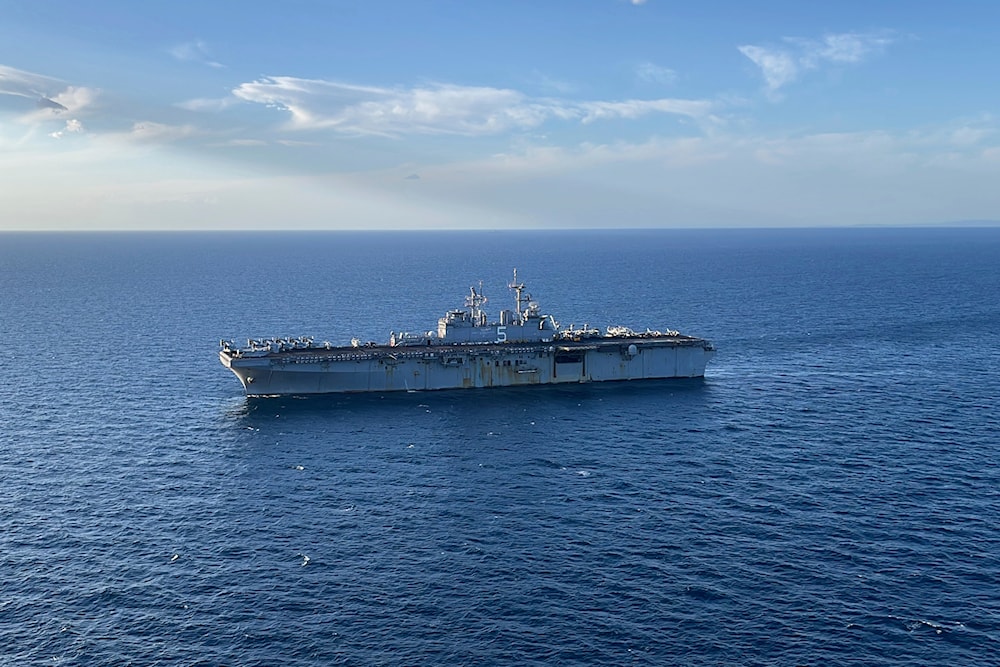Insurance companies halt services for US, Israeli ships in Red Sea
The Israeli economic newspaper "Globes" reports an increase in the duration and cost of shipping on board Israeli and American ships after insurance companies have stopped providing services to them during their route via the Red Sea.
-

The USS Bataan is seen in the Aegean Sea, Greece, on Thursday, January 18, 2024. (AP)
The Israeli economic newspaper "Globes" confirmed that insurance companies have suspended their services to Israeli and American ships crossing the Red Sea. This decision comes in light of the military operations conducted by the US in its attacks on Yemen, and Washington's move to offer support for Israeli and "Israel"-bound ships in the Red Sea.
The newspaper described the insurance companies' steps as crucial and exceptional, adding that stopping insurance would cost Israeli ships a longer sailing time, as it would leave them with two options.
The two options are:
1. Bypassing Africa via the Cape of Good Hope (southwest of South Africa), adding at least two weeks and more costs to the journey from the east.
2. Utilizing logistic ports in the Eastern Mediterranean, where goods would be unloaded and reloaded onto ships bound for "Israel".
Surge in insurance rate from 0.01% to 1%
The newspaper calculated that the Yemeni armed forces' operations resulted in a surge in the insurance rate for crossing the Red Sea, escalating from 0.01% of the value of goods on ships in early December to 1%.
In this context, the newspaper explained that "If a container ship carries around 12,000 TEU (Twenty-Foot Equivalent Unit) containers, the value of the goods is approximately 100 million dollars," emphasizing that the additional cost of securing transportation across the Red Sea amounts to one million dollars.
Read next: Shipping rates via Red Sea surge by 310%
Sanaa expressed its commitment to safeguarding the security of navigation in the Red Sea for all vessels except Israeli and US ships or those heading to ports in occupied Palestine. This stance is contingent on the cessation of aggression on Gaza. Additionally, Sanaa has cautioned Washington against the militarization of the Red Sea, particularly following the announcement of the "maritime coalition" aimed at protecting "Israel".

 2 Min Read
2 Min Read








